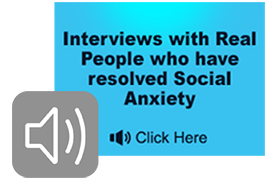Ask Jonathan
Dry Mouth When Presenting
Asked By: Anonymous Views: 3,527 times
I have used your audio program and read your book. I am trying very hard to implement your system. I am willing to accept adreneline when I present, as you recommend. However, I'm finding that my dry mouth is worse than ever when I present. I'm willing to accept the adreneline, but my mouth gets so dry it is literally difficult to form words. Also, from your advice, I have completely cut out caffeine, sugar, and sugar substitutes for the last 30 days, but I've still had several dry mouth episodes since then.
Any tips or suggestions would really be appreciative. Thank you for your work.
Interesting question. It would be important to understand the evolution of this specific symptom. You need to be clear on the etiology of the issue. Start with the following:
Xerostomia (pronounced /ˌzɪərɵˈstoʊmiə/) is the medical term for the subjective complaint of dry mouth due to a lack of saliva. Xerostomia is sometimes colloquially called pasties, cottonmouth, drooth, doughmouth or des (like a desert). Xerostomia is also common in smokers.[citation needed]
Xerostomia can cause difficulty in speech and eating. It also leads to halitosis and a dramatic rise in the number of cavities, as the protective effect of saliva's remineralizing the enamel is no longer present, and can make the mucosa and periodontal tissue of the mouth more vulnerable to infection. Notably, a symptom of heavy methamphetamine use usually called "meth mouth" is largely caused by xerostomia which is worsened by the fact that methamphetamine at recreational doses can cause tight clenching of the jaw, bruxism (compulsive grinding of the teeth), or a repetitive 'chewing' movement like the user is chewing without food in the mouth.
Contents [hide]
- Causes
- Treatment
- See also
- References
- External linksXerostomia can be caused by excessive clearance (such as by excessive breathing through the mouth), or it may be caused by insufficient production of saliva (called hyposalivation).
Hyposalivation, in turn, may be a sign of an underlying disease, such as Sjögren's syndrome, poorly controlled diabetes, or Lambert-Eaton syndrome, but this is not always the case.
Other causes of insufficient saliva production include anxiety, medications, or the consumption of alcoholic beverages, smoking marijuana, physical trauma to the salivary glands or their ducts or nerves, dehydration caused by lack of sufficient fluids, previous radiation therapy, and also a natural result of aging. The vast majority of elderly individuals will suffer xerostomia to some degree, although the most common cause is the use of medications. Output from the major salivary glands does not undergo clinically significant decrements in healthy older people and clinicians should not attribute complaints of a dry mouth and findings of salivary hypofunction in an older person to his or her age.[1] The results of one study suggested that, in general, objective and subjective measurements of major salivary gland flow rates are independent of age, gender, and race. Furthermore, signs and symptoms of dry mouth in the elderly regardless of race or gender should not be considered a normal sequela of aging.[2] Playing or exercising a long time outside on a hot day can cause the salivary glands to become dry as the bodily fluids are concentrated elsewhere. Xerostomia is a common side-effect of various drugs such as cannabis, amphetamines, heroin, antihistamines, and some antidepressants.
Treatment involves finding any correctable causes and fixing those if possible. In many cases it is not possible to correct the xerostomia itself, and treatment focuses on relieving the symptoms and preventing cavities. Patients who have endured chemotherapy usually suffer from this post- treatment. Patients with xerostomia should avoid the use of decongestants and antihistamines, and pay careful attention to oral hygiene. Sipping non-carbonated sugarless fluids frequently, chewing xylitol-containing gum,[3] and using a carboxymethyl cellulose saliva substitute as a mouthwash may help[citation needed]. Pilocarpine may be prescribed to treat xerostomia. Non-systemic relief can be found using an oxidized glycerol triesters treatment used to coat the mouth. Drinking water when there is another cause of the xerostomia besides dehydration may bring little to no relief and can even make the dry mouth more uncomfortable.[citation needed] The use of an enzymatic product such as Biotene toothpaste, Biotene mouthwash, and Biotene dry mouth moisturizing liquid has been proven to reduce the rate of recurrence of dental plaque resulting from dry mouth.[4][5] Of note is that Biotene does not significantly reduce the count of streptococcus mutans.
The following is part of a collection of questions and sharing by our readership community about a wide variety of aspects of social anxiety. Dive in and receive practical insights and advice. If you have a question that is not included you can contact Jonathan at jberent@socialanxiety.com.
Relating to these Area of Concerns




